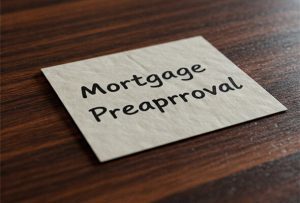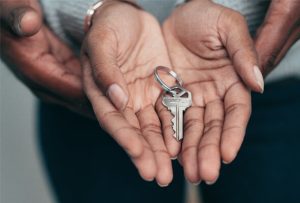Dubai, known for its ultramodern architecture, luxurious lifestyle, and vibrant culture, is a city that attracts expatriates and tourists from around the world. But how much does it cost to live in this dynamic metropolis?
This article explores the cost of living in Dubai, focusing on which neighborhoods are ideal for your budget – from opulent districts to affordable communities. Allow Sire Finance to walk you through the factors that shape the total cost of living, providing insights to help you navigate Dubai’s diverse landscape with confidence.
Is Dubai Expensive?
Dubai’s cost of living can be considered high compared to many other cities globally. However, it varies greatly depending on your lifestyle, location, and preferences. Essentials like groceries and utilities are relatively affordable, but housing and schooling can be significant expenses.
Dining out, entertainment, and transportation also add to the overall cost. Nevertheless, Dubai’s tax-free income can offset some of these expenses, making it a favorable destination for many expatriates.
What are the Most Expensive Neighborhoods in Dubai?
Below are the most expensive neighborhoods in Dubai, each offering a unique blend of high-end living, prime locations, and exceptional amenities.
Dubai Marina
Dubai Marina is a stunning waterfront neighborhood featuring an array of high-rise apartments, luxury yachts, and an impressive skyline. It offers vibrant nightlife, high-end restaurants, and numerous leisure options, including the Marina Walk, a promenade lined with retail outlets and cafes.
However, the prime location, luxurious amenities, and modern living spaces make Dubai Marina one of the more expensive areas in Dubai. Rent for a one-bedroom apartment can range from AED 80,000 to AED 120,000 per year, with larger apartments costing significantly more. The area’s exclusivity and premium services justify the higher costs.
Downtown Dubai
Home to the iconic Burj Khalifa and the Dubai Mall, Downtown Dubai is the epitome of luxury and modernity. This bustling district offers an urban lifestyle with a mix of residential towers, world-class hotels, and cultural attractions.
With such famous landmarks, you’re sure to expect Downtown to be one of the most expensive places to live, too, and you’re not wrong. The cost of renting a one-bedroom apartment ranges from AED 100,000 to AED 150,000 per year. The high price is attributed to the area’s central location, luxurious properties, and the prestige associated with living in such a renowned part of the city.
The Palm Jumeirah Island
The Palm Jumeirah is a man-made archipelago shaped like a palm tree, offering an exclusive living experience with luxury villas, upscale apartments, and high-end hotels. It boasts pristine beaches, fine dining, and leisure facilities.
Lying on the Palm requires quite a budget, with villa rentals ranging from AED 400,000 to several million dirhams annually. Apartment rents also start high, reflecting the island’s exclusivity, privacy, and luxury amenities. But if you seek a luxurious, private life, the serene environment and easy access to Dubai’s finest resorts and recreational spots make it all worthwhile.
Jumeirah 1, 2 & 3
The Jumeirah districts are known for their upscale villas and townhouses, offering a mix of traditional and modern architecture. These areas are close to the beach, with numerous parks, cafes, and shopping outlets.
Jumeirah is perfect for families and those who enjoy a quieter, more relaxed lifestyle. The proximity to top schools, healthcare facilities, and recreational areas makes it a favored choice among expatriates.
However, these advantages surely do not come cheap. The cost of living in Jumeirah is high, with rental prices for villas starting at AED 200,000 per year. The prime location, spacious properties, and quality of life contribute to the higher costs.
Al Barsha and Barsha Heights
If you’re one of those homeowners who value affordability and convenience, then Al Barsha and Barsha Heights are ideal neighborhoods.
Al Barsha and Barsha Heights are popular residential and commercial areas known for their affordable living options compared to other upscale neighborhoods. They offer a variety of apartments and villas, along with easy access to malls, restaurants, and business districts. They are well-connected by public transport and close to key areas like the Mall of the Emirates and Dubai Internet City.
Al Barsha and Barsha Heights are on the more affordable end, with one-bedroom apartments ranging from AED 50,000 to AED 80,000 per year. The area’s affordability, coupled with its amenities and connectivity, makes it a popular choice for many residents.
Al Quoz 1, 2, 3 & 4
Al Quoz is a diverse area known for its mix of industrial and residential zones. It has a burgeoning art scene, with several galleries and creative spaces. The residential part of Al Quoz offers villas and apartments at relatively lower prices.
Al Quoz is more affordable than other neighborhoods, with rental prices for apartments starting at AED 40,000 per year. The lower cost of living, combined with the area’s cultural vibe, makes it an attractive option for many. It’s also suitable for families and individuals looking for more affordable housing options while still being close to the city’s central areas.
What are the Most Affordable Neighborhoods in Dubai?
Below are some of the most affordable neighborhoods in Dubai, each offering unique benefits and a more budget-friendly lifestyle:
Bur Dubai
Bur Dubai is one of the city’s oldest and most culturally rich neighborhoods. Known for its historic charm, Bur Dubai features traditional markets (souks), museums, and a variety of restaurants offering diverse cuisines. The area is a vibrant mix of residential and commercial zones, providing a unique blend of old and new Dubai.
Bur Dubai is ideal for those who appreciate history, culture, and a bustling urban environment. It’s relatively affordable, with rental prices for a one-bedroom apartment ranging from AED 45,000 to AED 70,000 per year. The lower cost is due to the area’s older buildings and higher population density, which keep housing prices more reasonable compared to the more modern parts of the city.
Deira
Deira, situated on the eastern side of Dubai Creek, is a historic commercial hub known for its traditional markets, such as the Gold Souk and Spice Souk. The area is densely populated, with a mix of residential and commercial properties. It’s the perfect neighborhood for homeowners seeking affordable living while still having access to various public transportation options, including the metro, buses, and traditional abras (water taxis).
Deira is one of the most affordable areas in Dubai, with one-bedroom apartment rentals typically ranging from AED 40,000 to AED 65,000 per year.
Al Karama
Al Karama is a well-established residential neighborhood that is well-loved by families and expatriates due to its central location and relatively affordable cost of living.
They offer a community-oriented environment with various amenities, including parks, schools, and healthcare facilities. One-bedroom apartments typically rent for AED 45,000 to AED 70,000 per year. The affordability is due to the availability of older apartment buildings and a higher concentration of residents, which keeps demand and prices in check. The area’s focus on community living over luxury also contributes to its lower cost.
What Is The Average Cost of Living in Dubai?
Living in Dubai involves various costs that can add up quickly, depending on one’s lifestyle and family size. Here’s a breakdown of the average expenses for housing, transport, utilities, groceries, healthcare, leisure, and schooling to help you get a clearer picture.
Housing
Housing is typically the most significant expense for residents in Dubai. Rental prices vary widely based on the location and type of property. For instance, a one-bedroom apartment in a central area like Downtown Dubai or Dubai Marina can range from AED 80,000 to AED 150,000 per year.
In more affordable areas like Bur Dubai, Deira, or Al Karama, the rent for a one-bedroom apartment usually ranges from AED 40,000 to AED 70,000 per year. Villa rentals in upscale areas like The Palm Jumeirah can start from AED 400,000 annually.
Transport
Dubai’s public transportation system includes the metro, buses, taxis, and water taxis (Abras). A monthly pass for public transport costs around AED 300. Taxis are also widely used, with an average fare of AED 2 per kilometer plus a starting fare of AED 8.
For those who prefer driving, fuel costs are relatively low compared to global standards, but car insurance, maintenance, and registration fees add to the expense. Owning a car could cost between AED 1,500 and AED 3,000 per month, including these additional costs.
Utilities
Utilities such as electricity, water, and cooling can be a significant part of the monthly expenses. On average, a two-bedroom apartment might incur utility bills ranging from AED 600 to AED 1,200 per month, depending on the season and usage.
During the summer months, temperatures soar above 40°C (104°F), and the cost of cooling can increase significantly as air conditioning units run almost continuously to maintain comfortable indoor temperatures. In contrast, during the milder winter months, these costs are lower as the demand for cooling decreases.
Internet and mobile phone packages are also essential utilities, with costs of around AED 300 to AED 500 per month for both services combined.
Groceries
The cost of groceries in Dubai can vary based on dietary preferences and shopping habits. On average, a family of four might spend between AED 2,000 to AED 3,000 per month on groceries. Shopping at hypermarkets like Carrefour or local markets can help manage expenses, while imported and premium products at specialty stores tend to be more expensive.
Healthcare & Insurance
Healthcare in Dubai is of high quality but can be costly without insurance. Health insurance is mandatory, and the cost depends on the coverage and provider.
Basic health insurance for an individual starts at around AED 700 per year, while comprehensive plans for a family of four can range from AED 10,000 to AED 20,000 annually. Out-of-pocket expenses for medical consultations, treatments, and medications can add up if not covered by insurance.
Leisure
Leisure activities in Dubai can vary widely in cost. Dining out ranges from affordable street food to high-end restaurants. A meal at a mid-range restaurant costs around AED 200 for two people, while a quick meal at a fast-food outlet costs about AED 35 per person.
Entertainment options such as cinema tickets cost around AED 45 each, and gym memberships can range from AED 200 to AED 700 per month. Other leisure activities like beach access, water sports, and desert safaris can also add to the overall cost.
Schools
Education is a significant expense for families with children in Dubai, as the city is home to a vast array of private schools offering diverse international curricula. These include the British, American, International Baccalaureate (IB), Indian, and other systems catering to the multicultural expatriate community.
Annual school fees can range from AED 20,000 to AED 100,000 per child, depending on the school and grade level. Additional costs include mandatory uniforms, textbooks, extracurricular activities, and transportation, which can add several thousand dirhams per year to the total education cost.
What Is the Minimum Cost of Living in Dubai?
For those seeking to live frugally in Dubai, the minimum cost of living can be significantly lower than the average. However, it requires careful budgeting and making economical choices in various aspects of life. One of the primary contributors to minimizing the cost of living is accommodation.
Opting for shared accommodation or renting a smaller, more modestly priced apartment in less upscale areas like Al Nahda or International City can substantially reduce housing expenses. Similarly, choosing public transportation over owning a car, cooking at home instead of dining out frequently, and shopping at budget-friendly supermarkets or local markets for groceries are effective strategies for cutting costs. Additionally, being mindful of utility usage, such as conserving electricity and water, can further reduce monthly expenses.
While it’s possible to live frugally in Dubai, there’s an absolute minimum threshold for covering essential expenses. This threshold varies depending on individual needs and circumstances but typically includes costs for rent, utilities, groceries, transportation, healthcare, and basic amenities.
In some cases, individuals may need to prioritize certain expenses over others, such as allocating more funds towards accommodation while cutting back on leisure activities or dining out. However, it’s essential to strike a balance between frugality and maintaining a reasonable standard of living to ensure overall well-being and financial stability.
What is the Average Cost of Living in Dubai for Families, Singles, and Couples?
The minimum cost of living in Dubai for a single person can be around AED 4,000 to AED 6,000 per month, while for a couple, it could range from AED 7,000 to AED 10,000 per month. Families with children will have higher expenses, primarily due to schooling, but living frugally can bring their monthly costs to around AED 12,000 to AED 18,000.
Singles
Singles have lower living costs as they often choose smaller housing, have fewer daily expenses, and generally spend less on groceries and utilities.
Several factors contribute to the minimum cost of living for singles in Dubai. Housing poses a significant expense, with a studio or one-bedroom apartment in an affordable area costing between AED 40,000 to AED 70,000 annually.
Groceries also play a crucial role, with monthly expenses typically ranging from AED 800 to AED 1,500. Basic healthcare insurance for an individual adds to the budget, averaging around AED 700 to AED 1,500 annually.
Utilities, including electricity, water, and cooling, for a small apartment can range from AED 400 to AED 700 per month. Additionally, leisure activities, while important for quality of life, can be managed by singles through careful budgeting and choosing cost-effective options.
Considering these factors, the average total minimum cost of living for singles in Dubai ranges from approximately AED 54,500 to AED 97,900 annually.
Couple
Couples’ living costs fall between those of singles and families. They may share housing expenses and have moderate additional costs compared to singles.
Couples often opt for leasing one-bedroom or two-bedroom apartments, which can cost anywhere from AED 60,000 to AED 120,000 annually.
Grocery expenses also hold significant importance, with their combined monthly spending typically falling between AED 1,500 and AED 2,500. In terms of healthcare and insurance, couples may either opt for a shared health insurance plan or individual plans, which can amount to a total of AED 3,000 to AED 5,000 per year.
Utility expenses, encompassing electricity, water, and cooling for their living space, can fluctuate between AED 600 to AED 1,200 per month. Additionally, couples can efficiently manage their leisure activities by strategically budgeting and availing themselves of various deals and discounts, ensuring quality time together without overspending.
Taking into account these elements, the estimated total minimum living expenses for couples in Dubai span from roughly AED 88,200 to AED 169,400 annually.
Families
Families typically have higher living costs due to the need for larger housing, schooling, and additional daily expenses such as groceries and healthcare.
Housing presents a significant consideration, given that families typically require larger accommodations such as apartments or villas, which can be found at rents ranging from AED 120,000 to AED 300,000 annually in desirable residential areas.
Education expenses also pose a substantial burden on family finances, as previously mentioned, exerting a notable impact. Moreover, groceries constitute a significant portion of the family’s expenditure, with monthly expenses for a family of four ranging between AED 2,500 and AED 4,000.
Ensuring comprehensive health insurance coverage is crucial for families, with associated expenses usually falling within the range of AED 10,000 to AED 20,000 per year. Utility bills, catering to the needs of larger living spaces, typically range from AED 1,200 to AED 2,500 monthly. Furthermore, families often allocate funds for leisure pursuits, prioritizing entertainment and activities suitable for their children.
Taking these factors into account, the average total cost of living for families in Dubai is estimated to range from approximately AED 176,400 to AED 502,000 annually.
Dubai Living, Simplified.
Understanding the cost of living in Dubai is essential for anyone considering a move to this vibrant city. From housing to utilities, groceries to healthcare, each aspect contributes to the overall expenses families, couples, and singles may incur. With careful budgeting and strategic planning, individuals can navigate these costs effectively, ensuring a comfortable lifestyle while managing finances responsibly.
At Sire Finance, we recognize the importance of clarity and transparency when it comes to financial matters. Our expert mortgage brokers are dedicated to simplifying the process of obtaining home loans and mortgages for those looking to settle in Dubai.
With a focus on transparency, speed, and professionalism, we strive to eliminate confusion and address any concerns you may have. Whether you’re a family, couple, or single professional ready to take the next step in your Dubai journey, Sire Finance is here to assist you every step of the way. Let us handle the complexities while you focus on embracing the opportunities that Dubai has to offer.












